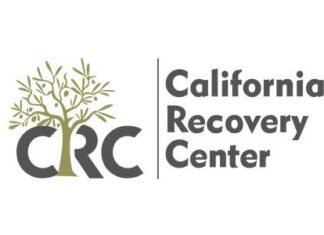Sacramento, Calif.- Researchers with the UC Davis MIND Institute will receive nearly $12 million over two years to study causes and treatments for autism and other disorders, in funding provided by the American Recovery and Reinvestment Act, or the federal economic stimulus.
“The MIND Institute is fortunate to have such a talented group of scientists who will make a real difference in our understanding the causes and in developing effective treatments for a number of neurodevelopmental disorders,” said Robert Hales, interim director of the MIND Institute and chair of the Department of Psychiatry and Behavioral Sciences.
The funding will support a wide array of MIND Institute studies, including the Childhood Risks of Autism from Genetics and the Environment (CHARGE) study, the Autism Phenome Project (APP), the Infant Sibling Project and the Neurotherapeutics Research Institute (NTRI).
‘The University of Davis Health System, in cooperation with the National Institutes of Health (NIH), has been able to bring a great addition in both an economic sense as it spurs development in Sacramento, but also they continue to bring about innovation through their research to the benefit of American families,’ said Rep. Doris Matsui (D-Sacramento).
‘The UC Davis MIND Institute serves a model of how universities, research institutions and communities can come together to tackle challenging disorders, learn from each other and advance medical research and understanding. The recovery package is helping to support such collaboration, and fund this important work.’
The grants include:
The CHARGE study: Led by epidemiologist Irva Hertz-Picciotto, this study received two awards totaling more than $3.2 million. Hertz-Picciotto is professor of public health sciences, deputy director of the Children’s Center for Environmental Health at UC Davis and a MIND Institute researcher. CHARGE was launched in 2003 as a study of 2,000 children designed to better understand the causes and contributing factors for autism or developmental delay and, in particular, to uncover the interplay between genetics and the environment. Participants include children with autism, children with developmental delay who do not have autism and typically developing children.
The Autism Phenome Project: A team including MIND Institute Research Director David Amaral, Sally Rogers, professor of psychiatry and behavioral sciences and Judy Van de Water, associate professor of rheumatology, allergy and clinical immunology, received a nearly $3 million award for the Autism Phenome Project. The project is one of the largest and most comprehensive assessments of children with autism nationwide, and has evaluated over 200 families thus far, two thirds of them with a child with autism, and a third with typically developing children. The goal of the project is to define the subtypes of autism in order to more systematically study causes and develop more effective targeted treatments. Participants receive a wide array of tests, including extensive behavioral and physical examinations, magnetic resonance imaging (MRI), blood sampling and immunological examinations. The new funding will allow the APP team to increase the number of families evaluated to over 400.
The Infant Sibling Project will receive just over $2 million to continue efforts by a team led by Sally Ozonoff, professor of psychiatry and behavioral sciences, to uncover the earliest signs of autism and prevent or mitigate the full onset of the condition and its severe disability. In addition to the comprehensive behavioral evaluations currently being conducted, the new award will fund MRIs of young children at risk for autism. MRIs will be done on infants as young as 6 months of age to determine whether aspects of brain organization may be used to help predict which children will progress to autism.
Paul Hagerman is the lead researcher on a $787,000 challenge grant one of the roughly 200 funded out of 23,000 submitted to use stem cell technology to examine the disease mechanisms in a neurodegenerative condition called fragile-X associated tremor/ataxia syndrome, or FXTAS, in research that could provide insights into a number of other disorders, like Parkinson’s and Alzheimer’s diseases. Hagerman is professor in the Department of Biochemistry and Molecular Medicine and the director of the UC Davis Neurotherapeutics Research Institute (NTRI), which was established to discover highly integrated approaches to developing targeted therapeutics, including molecular interventions, for neurogenetic disorders.
Other researchers affiliated with the MIND Institute who are receiving stimulus funds include:
Kimberly McAllister, associate professor of neurology at the Center for Neuroscience, received two grants totaling $1.2 million for the two-year period, one for research into the formation of synapses between neurons in the visual system and another for the study of maternal immune function and its role in autism.
Sally Rogers also will receive a $527,000 grant for studies that evaluate the effectiveness of autism-specific interventions for children between 6 and 11 months old.
Peter Mundy, professor of education and of psychiatry and behavioral sciences and director of educational research at the MIND Institute, is receiving a $411,000 award to study the therapeutic applications of virtual reality technology and social skills training for high-functioning individuals with autism.
A team led by Frank Sharp, professor in the Department of Neurology, that also includes Paul Ashwood, assistant professor of medical microbiology and immunology, and Judy Van de Water, received $535,500 to evaluate the interactions of genes and the immune system in mothers of children with autism.
Janine LaSalle, professor of medical microbiology and immunology, received approximately $100,000 to study genetic and environmental contributions to the causes of Rett syndrome.
The UC Davis MIND Institute, in Sacramento, Calif., was founded in 1998 as a unique interdisciplinary research center where parents, community leaders, researchers, clinicians and volunteers collaborate to study and treat autism and other neurodevelopmental disorders.
(21+ years strong)
Welcome to the brighter side!
Get in front of local customers! 24/7 (365)





















